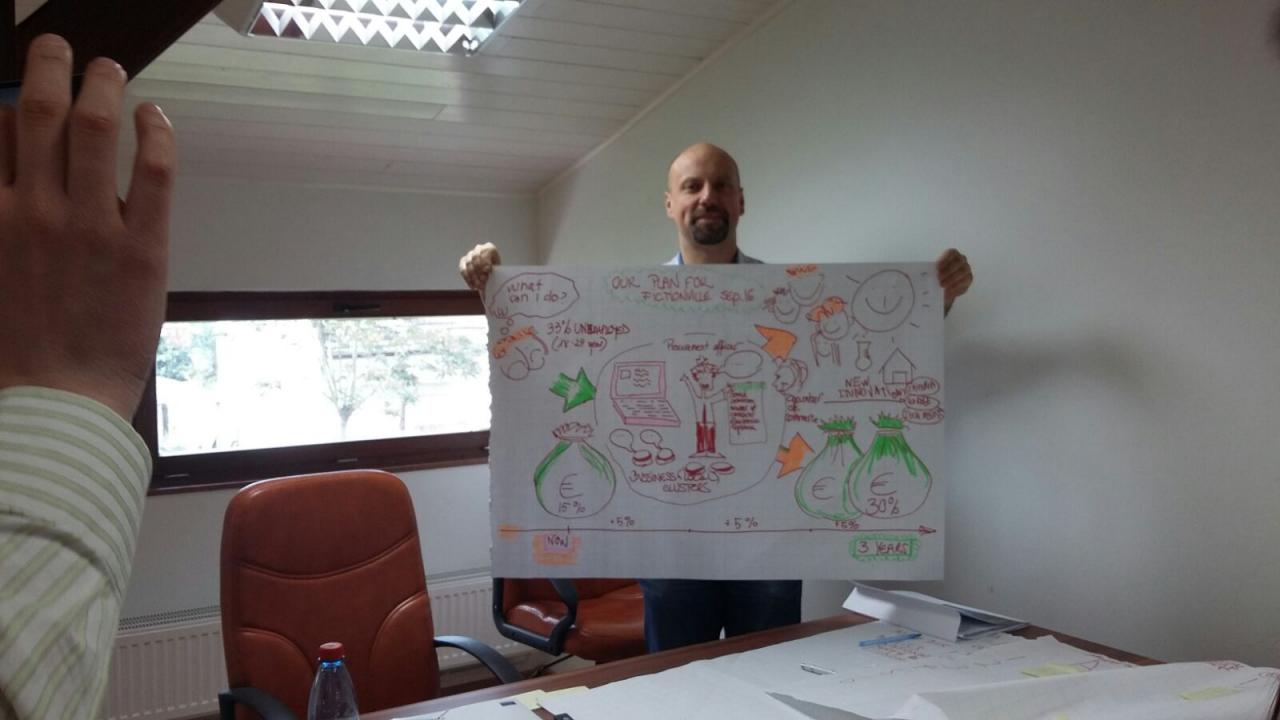
If cities are to progress the way in which they undertake procurement so that it brings more local economic, social and environmental benefits, they need to go through a number of steps. As part of the Procure network, we have already completed two of those steps. The baseline study enabled our partner cities to identify the activities they were already doing around procurement and importantly to identify key challenges they faced. Our first transnational meeting in Lublin, Poland effectively set the legal context for more progressive procurement through exploring European and National Level law.
The next logical step is to undertake spend analysis and develop procurement strategy and this was the focus of our second transnational meeting in Nagykálló, Hungary and Satu Mare, Romania in September 2016.
I have been supporting cities over the last ten years to measure and understand where there procurement spend goes and the impact it has on local economies. Spend analysis can be done for a variety of reasons and utilising a range of tools, but for me it is important for three main reasons:
First, it enables cities to understand where their spend goes in terms of geography (in their own city, in neighbourhoods in their city, and in their wider city-region); whether spend is with particular sectors; whether spend is with SMEs; and how much leaks out of their city. Second, it enables cities to link the process of procurement to other agendas and priorities, whether that be around job creation, skills development or SME development – spend analysis is effectively an evidence base for change. And third, it enables cities to develop aims and objectives for how they want to change procurement strategy, processes and practice.
The base of my work around spend analysis over the last ten years has been a methodology called Local Multiplier 3 (LM3). This basically looks at how money spent by municipalities and other public bodies ripples through a local economy through spend on the wages of local people and spend with local suppliers; and their subsequent re-spend back in the local economy in shops and on local employees and suppliers of their own. I have used the principles of LM3 with Manchester City Council to analyse their procurement spend over each of the last 8 years. They have utilised spend analysis as a means of both understanding spend and increasing levels of spend with local organisations. Over 70% of Manchester City Council’s spend is now with local organisations compared with 51.5% in 2008/09.
Once spend analysis is complete, cities then need to develop procurement strategies. In the transnational meeting in Nagykálló and Satu Mare, our partners created a procurement strategy for a fictional city. However, it is important to reflect that the process of creating a procurement strategy should follow a relatively standard structure, but be reflective of local circumstances. Cities need to consider context, evidence, aims and objectives, actions, and implementation.
The Procure network is moving through the process of being more progressive in procurement. We have identified challenges, set the legal context, undertaken spend analysis, and developed procurement strategy. Next is considering social criteria in the procurement decision.
Matthew Jackson is the Lead Expert for the Procure network.
Matthew is the Deputy Chief Executive of the Centre for Local Economic Strategies (CLES)
